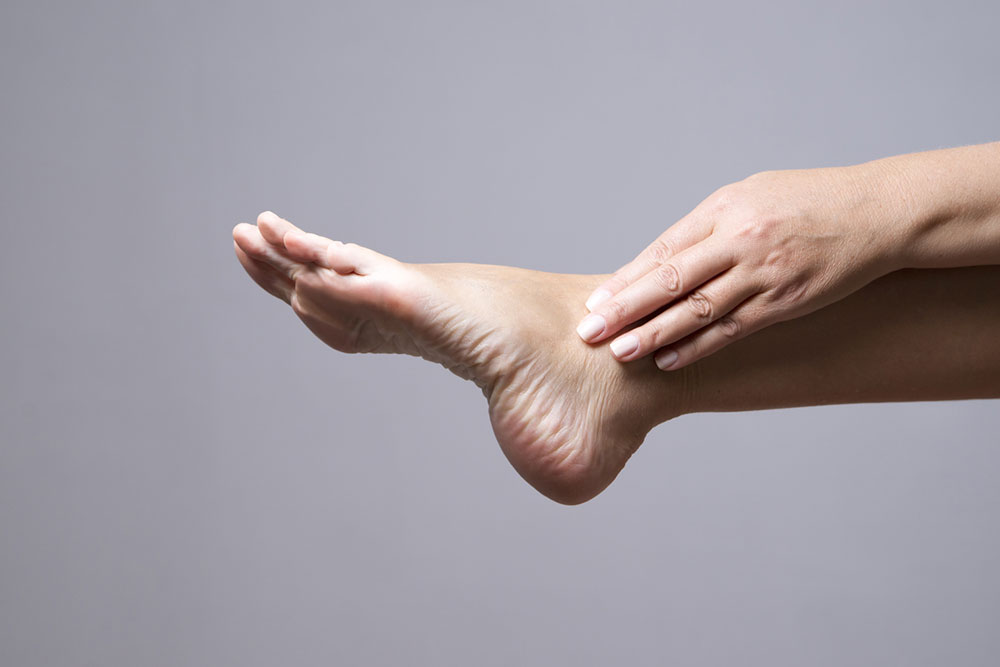Here’s What You Need to Know About Burning Foot Pain
A burning sensation in your feet is often related to nerve damage caused by certain underlying health conditions, out of which diabetes is one of the major causes. The feeling of pain can range from mild to harsh, and intermittent to constant. Sometimes you may get the feeling of hot, tingling or prickling pain or numbness in your feet which usually gets worse during the night.
Causes of burning foot pain
Sometimes, cases of burning foot pain have unknown causes.

Diabetic neuropathy
Uncontrollably high levels of blood sugar can gradually damage your blood vessels and nerves, leading to a reduction in the transmission of signals from the nerves. It can also weaken the blood vessel walls that are responsible for carrying oxygen and nutrients to nerves all over the body. Altogether, this can affect the ability to feel sensation in various parts of the body, including the feet.
According to the National Institute of Diabetes and Digestive and Kidney Diseases, around 60-70 percent of people with uncontrolled diabetes have some nerve damage or neuropathy. Certain factors can increase the risk of neuropathy:
- Obesity
- High blood pressure
- Smoking
- Alcohol consumption
When the nerve damage takes place in your legs and feet, it’s known as peripheral neuropathy. It is the most common form of diabetic neuropathy. Apart from the burning sensation in the feet produced by peripheral neuropathy, there are some other symptoms which are as follows:
- Numbness or tingling in your hands and feet
- Sharp and stabbing pains
- Weakness in your legs or arms
- Excessive sweating
Small fiber sensory neuropathy (SFSN)
SFSN is painful neuropathy which often leads to a painful burning sensation in the feet. Other symptoms associated with SFSN are a loss of feeling in the feet and shorts bursts of pain which mainly result from a loss of the myelin sheath.
Heavy alcohol consumption
People with heavy alcohol use can suffer from another type of nerve damage known as alcoholic neuropathy. In addition to the sensation of burning pain in the feet, other symptoms associated with this condition include:
- Muscle weakness
- Loss of muscle function
- Urinary or bowel dysfunction
- Dizziness
- Impaired speech
Charcot-Marie-Tooth Disease (CMT)
CMT is one of the most common inherited nerve diseases which affects the nerves responsible for controlling muscles. One of its first symptoms is burning pain, or the feeling of pins and needles in the feet or hands. Other symptoms associated with it may include clumsiness and muscle atrophy. According to the National Institute of Neurological Disorders and Stroke, about 1 in every 2500 people in the country has CMT.
Complex regional pain syndrome (CRPS)
CRPS is common after an injury or surgery. It occurs in the limbs due to nerve damage which affects the signaling from the brain and spine. Its symptoms include:
- Burning pain in the feet
- Swelling
- Changes in skin color or texture
Hypothyroidism
An underactive thyroid changes the hormonal balance in your body which can cause swelling that puts pressure on your nerves. Apart from burning foot pain, other symptoms of hypothyroidism may include fatigue, unexplained weight gain, and dry skin.
Athlete’s foot
It is a contagious fungal infection that athletes face quite often. It can also affect the toenails and hands. The most common symptoms of athlete’s foot include burning foot pain and a sensation of tingling or itching between the toes or on the soles of the feet.
Diagnosis of burning foot pain
The first step to diagnosing the cause of burning foot pain is to visit an appropriate medical professional who will conduct various physical exams and ask you about your medical history and symptoms. Most likely, your doctor will test you for diabetes as it is the most common cause of burning foot pain. There may be other blood tests which may test the following:
- Thyroid hormone
- Kidney function
- Vitamin deficiency
- HIV
- Other infections
Treatment for burning foot pain
Treatment for burning pain in the foot depends on the underlying causes. However, it has pretty straightforward treatment procedures which are as follows:
- Antifungal prescription for athlete’s foot
- Vitamin B supplements
- Thyroid supplements
- Comfortable shoes
For severe pain, your doctor may recommend nerve stimulation by the following therapies:
- Electrical nerve stimulation
- Magnetic therapy
- Laser therapy
- Light therapy
Home remedies for pain relief
You can try some home remedies to get temporary relief from this problem.
- Soaking feet in cold water: This can give you immediate relief from burning foot pain.
- Soaking feet in Epsom salts or apple cider solution: This home remedy works quite well. However, if you have diabetes, you must talk to your doctor before trying out this option.
- Massage your foot: This will help to improve blood flow and circulation
- Apply topical creams: A topical cream that contains lidocaine or capsaicin can be highly effective in relieving burning foot pain.
You can opt for any of the treatment options mentioned above if you are suffering from burning foot pain. However, it is wise to consult a doctor before proceeding with any line of treatment or medication.